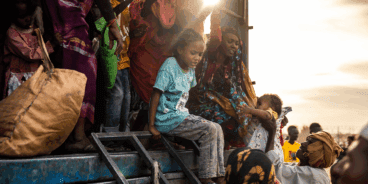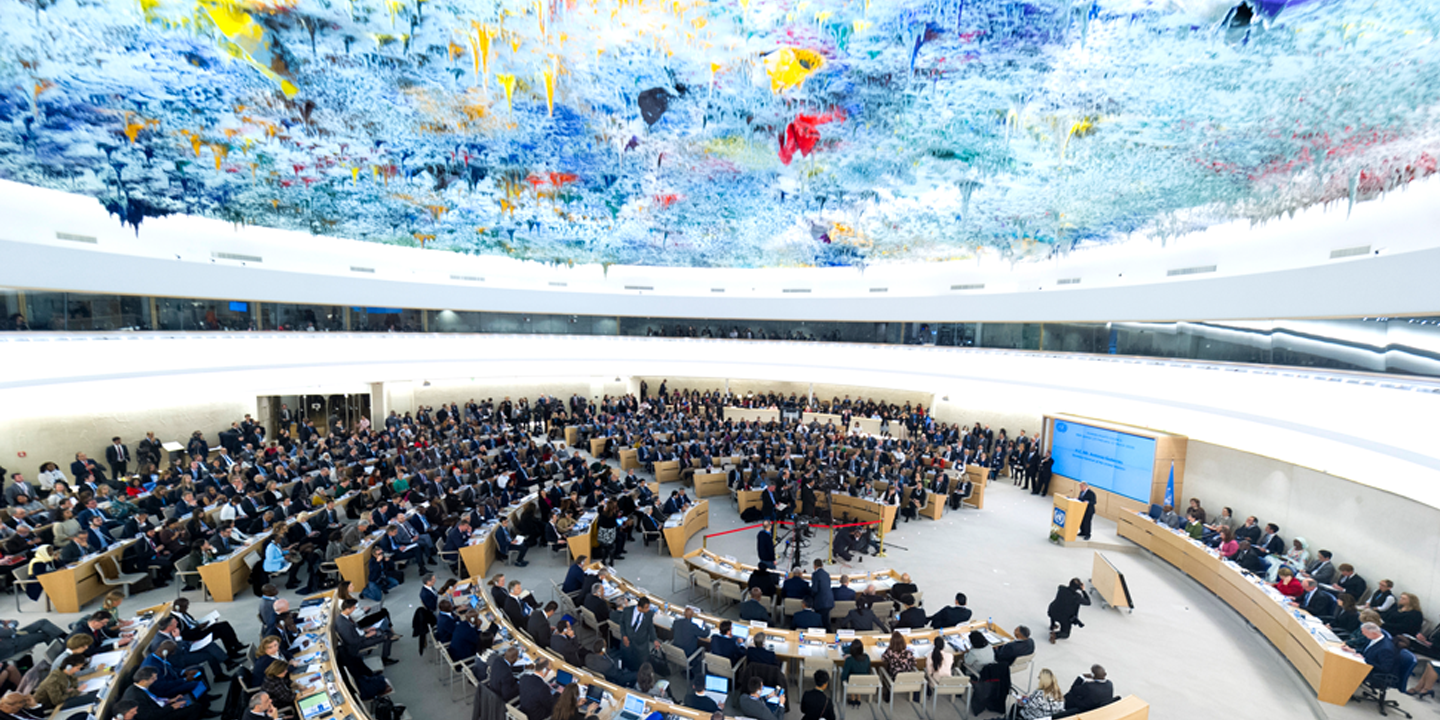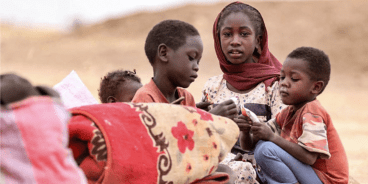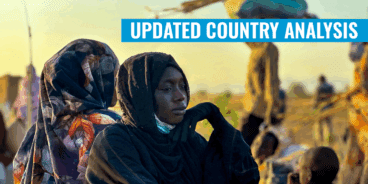

South Sudan: As elections loom, extend vital Human Rights Commission mandate
To Permanent Representatives of Member and Observer States of the United Nations (UN) Human Rights Council
Excellencies,
Ahead of the UN Human Rights Council’s (“HRC” or “Council”) 55th session (26 February-5 April 2024), we, the undersigned non-governmental organisations, write to urge your delegation to support a full extension of the mandate of the UN Commission on Human Rights in South Sudan (hereafter “CHRSS” or “Commission”).
As South Sudan is preparing for its first-ever national elections, in December 2024, significant concerns exist not only about the country’s human rights situation but also about the absence of key conditions for the holding of free, fair, secure, and credible elections and about the absence of an enabling environment for civil society. In this context, international scrutiny remains vital.
As 95 organisations highlighted in a letter released ahead of the Council’s 52nd session,[1] the CHRSS is the only mechanism tasked with collecting and preserving evidence of violations of international humanitarian and human rights law with a view to ensuring accountability and addressing human rights issues in South Sudan from a holistic perspective. Its work, including advisory functions, remains vital as the conditions that prompted the HRC to establish the Commission, in 2016, have not significantly changed. Until there is meaningful and genuine progress, there is no reason for the Council to lift its scrutiny.
We stress that all elements of the CHRSS’s mandate should be preserved. Any change to it, or to the level of scrutiny the Council dedicates to South Sudan in addition to the advisory services it provides as per resolution 52/1, would send the wrong message. The Commission’s mandate should at the very least cover the entirety of the transitional period, after which an assessment should be made again whether the conditions that prompted the establishment of the Commission have changed to warrant a new approach.
~ ~ ~
Violence and impunity remain pervasive in the country. All trends and patterns outlined in previous civil society letters continue. Our organisations note the lack of structural improvements with the utmost concern. Ongoing violations and abuses include extrajudicial executions and other unlawful killings, serious violations of international humanitarian law that may amount to crimes under international law, politically instigated and supported violence between community-based militias and vigilante groups, egregious violations of women’s and girls’ human rights, including sexual and gender-based violence (SGBV) and conflict-related sexual violence (CRSV), arbitrary arrests, and intimidation of, threats against, and harassment of civil society actors, including human rights defenders and journalists,[2] in a climate of widespread impunity. Localised conflicts and intercommunal violence remain pervasive in parts of Warrap State, Eastern, Central and Western Equatoria States, Greater Upper Nile State, Greater Jonglei, and Unity State, as well as in the administrative regions of Abyei and Pibor. In May 2023, the UN Security Council extended the arms embargo on South Sudan. Implementation of the five benchmarks that serve as a basis for the UN Secretary-General’s assessment has been null or limited.
The humanitarian crisis remains severe. Across the country, conflict, including attacks against humanitarian workers and theft of food supplies, climate change, and soaring costs are causing “some of the highest levels of hunger in the world.” In 2023, 9.4 million people (or over 85% of the population) were in need of aid. As of 22 January 2024, the funding gap for humanitarian aid is 1.7 billion US dollars.
The cross-border impact of the conflict in Sudan is also “exacerbating existing triggers and drivers of conflict across South Sudan […] amid competition over scarce resources, economic hardship, pre-existing communal tensions, and the presence of firearms,” which adds to the much wider “patchwork of intercommunal and subnational conflict.”
Ten years after the onset of South Sudan’s conflict, which claimed over 400,000 lives and displaced millions, justice remains elusive for the victims and survivors. Progress with regard to accountability remains extremely limited. The continuation of the CHRSS’s mandate is the best means to safeguard prospects for future accountability, including through the Hybrid Court for South Sudan (HCSS), whose establishment continues to be paralysed. The other transitional justice mechanisms envisioned in Chapter V of the peace agreement, namely the Commission for Truth, Reconciliation and Healing (CTRH) and the Compensation and Reparation Authority (CRA), have not been established.
Ten months before South Sudan’s first national elections, uncertainty over the constitution-making and electoral process is high. Critical questions remain unanswered, including on the type of election, voter registration issues, delineating constituencies, and managing electoral disputes. Foundational tasks necessary for citizens to head to the polls are incomplete. Among them, the need to reconstitute the National Constitutional Review Commission, the National Elections Commission, and the Political Parties Council. Transitional security arrangements as per the R-ARCSS are lagging behind schedule. On 14 December 2023, the head of the UN Mission in South Sudan (UNMISS), Nicholas Haysom, sounded the alarm. He said that “South Sudan is in no position to hold free, fair, or secure elections […].” Stressing that a “critical mass of pre-requisites” is necessary to hold free, fair, and credible elections, he mentioned the absence of a permanent Constitution, voter registration details, an election security plan, well trained, equipped, and unified security forces, and a mechanism for resolving disputes over results.
As the CHRSS highlighted in a conference room paper, “holding elections without addressing security concerns, creating an enabling environment, and completing the technical arrangements risks compounding grievances and fuelling further violence.” The Commission added: “It is […] troubling that [ruling] SPLM-IG leaders have continued to emphasise the urgency of elections to end the transition period, and its power-sharing arrangements, which they have increasingly portrayed as a political encumbrance. They envisage a ‘winner takes all’ outcome […]. A context in which elections become a zero-sum exercise increases the political stakes and foments a recourse to irregularities and even violence, as the loss of elections represents the marginalisation of whole constituencies […].”
Beyond logistical preparations, an enabling environment for free, fair, and credible elections, including an open civic space, is also lacking. To address this, “entrenched patterns of disruption and interference with citizens’ freedoms of assembly, association and expression must be abandoned […].”
In practice, however, South Sudanese civil society, including human rights defenders (HRDs) and journalists and media workers, has been facing intensifying repression. This includes undue restrictions on their rights to freedoms of opinion and expression, peaceful assembly, and association. Independent actors face harassment, intimidation, surveillance, arbitrary bureaucratic controls, censorship, threats, physical assault, arbitrary arrests and detentions, including incommunicado detention and extraordinary renditions from other African countries, torture, enforced disappearances, and extrajudicial killings. Women HRDs and journalists face additional gender-specific threats, including sexual violence, in the context of reprisals.[1] The National Security Service (NSS), whose mandate should urgently be brought in line with international human rights law and the 2011 Transitional Constitution through amendments to the NSS Act, is a key instrument of repression. As the Commission summed up in its last conference room paper, “[a]s South Sudan contemplates a period of elections and constitution-making, the impartial and constructive role of the NSS will be a critical litmus test of the credibility of those processes.”
~ ~ ~
This is not the time to relax the Council’s scrutiny. The mandate of the CHRSS remains vital and should continue until the reasons that led the Council to establish this mechanism have been addressed in a meaningful manner.
The Council should request the CHRSS:
-
-
- To present a comprehensive written report on the situation of human rights in South Sudan to it at its 58th session, to be followed by an enhanced interactive dialogue;
- To present an oral update to the Council at its 57th session; and
- To share its reports and recommendations with relevant bodies and mechanisms of the African Union and all relevant organs of the United Nations, and to submit a comprehensive report to the General Assembly at its 79th session, to be followed by an interactive dialogue.
-
We thank you for your attention to these pressing issues and stand ready to provide your delegation with further information as required.
Sincerely,
- Action 54 – South Sudan
- Action for Community Education and Development – South Sudan
- Action for Community Transformation Initiative (ACTI) – South Sudan
- Action for Rural Transformation – South Sudan
- African Child Network Care (ACCN) – South Sudan
- AfricanDefenders (Pan-African Human Rights Defenders Network)
- African Women and Children Organization – South Sudan
- Ana Taban Arts Initiative – South Sudan
- Anika Women Association (AWA) – South Sudan
- Asian Forum for Human Rights and Development (FORUM-ASIA)
- Ayod County Civil Society Network (ACCN) – South Sudan
- Bentiu Youth Peace Initiative
- Burkinabè Human Rights Defenders Coalition (CBDDH)
- Burundian Human Rights Defenders Coalition (CBDDH)
- Cairo Institute for Human Rights Studies (CIHRS)
- Center for Peace and Justice (CPJ) – South Sudan
- Center for Reproductive Rights
- Central African Network of Human Rights Defenders (REDHAC)
- Centre for Democracy and Human Rights (CDD) – Mozambique
- Centre for Development and Research (CDR) – South Sudan
- Centre for Human Rights and Democracy (CHRD)
- Centre for Innovation and Creativity – ICT Solutions (South Sudan)
- Centre for Legal Aid and Governance (CLAG) – South Sudan
- Centre for Legal Aid and Justice (CLAJ) – South Sudan
- Centre for Peace and Advocacy (CPA)
- Change Agents Organization South Sudan
- Child Pearl – South Sudan
- Civic Space Network – Africa (CSNA)
- CIVICUS
- Civil Society Coalition on Defence of Civic Space (CSCDCS) – South Sudan
- Coalition of Human Rights Defenders-Benin (CDDH-Bénin)
- Community Action for Rehabilitation and Development (CARD) – South Sudan
- Community Empowerment for Peer Education (COPE) – South Sudan
- Community Empowerment for Progress Organization (CEPO)
- Consortium of Ethiopian Human Rights Organizations (CEHRO Ethiopia)
- DefendDefenders (East and Horn of Africa Human Rights Defenders Project)
- Empower the Girl Child Initiative – South Sudan
- Federation of Women Lawyers (South Sudan)
- FIDH (International Federation for Human Rights)
- Gender Centre for Empowering Development (GenCED) – Ghana
- Geneva for Human Rights – Genève pour les Droits de l’Homme
- Global Centre for the Responsibility to Protect (GCR2P)
- Humanitarian Development Organization (HDO) – South Sudan
- Human Rights Defenders Network – Sierra Leone
- Human Rights Watch
- Institut des Médias pour la Démocratie et les Droits de l’Homme (IM2DH) – Togo
- International Bar Association’s Human Rights Institute
- International Commission of Jurists (ICJ)
- Itkwa Women Empowerment Organization (IWEO)
- Ivorian Human Rights Defenders Coalition (CIDDH)
- Lawyers’ Rights Watch Canada
- Ma’ Mara Sakit Village – South Sudan
- Mobile Humanitarian Agency – South Sudan
- Mozambique Human Rights Defenders Network (MozambiqueDefenders – RMDDH)
- National Press Club South Sudan (NPC-SS)
- National Women Empowerment and Rehabilitation Organization (NWERO) – South Sudan
- Network of the Independent Commission for Human Rights in North Africa (CIDH Africa)
- New Vision for Sustainable Development (NVSD) – South Sudan
- Nigerien Human Rights Defenders Network (RNDDH/NHRDN)
- Nile Centre for Human Rights and Transitional Justice (NCHRTJ)
- Nile Initiative for Development (NID South Sudan)
- Nile Sisters Development Initiative Organization (NSDIO)
- Opportunity Hub – South Sudan (OHSS)
- Pan African Peacemakers Alliance (PAPA)
- Passion for the Needy – South Sudan
- Peoples Demand Organization – South Sudan
- Protection International Africa
- Rights for Peace
- Rural and Urban Development Agency (RUDA) – South Sudan
- Safe Orphans Charity Organization – South Sudan
- Southern Africa Human Rights Defenders Network (SouthernDefenders)
- South Sudan Action Network on Small Arms (SSANSA)
- South Sudan Community Based Organization
- South Sudan Human Rights Defenders Network (SSHRDN)
- South Sudan Youth for Peace and Development Organization (SSYPADO)
- Standard Action Liaison Force (SALF) – South Sudan
- Support Peace Initiative Development Organization (SPIDO)
- Togolese Human Rights Defenders Coalition (CTDDH)
- Union of Journalists of South Sudan (UJOSS)
- Voice of Women Organization (VOW)
- War Widows and Orphans Association (WWOA)
- West African Human Rights Defenders Network (ROADDH/WAHRDN)
- Women Action Society for Development Peace and Justice (WASDPJ)
- Women Ambassadors for Peacebuilding – South Sudan
- Women Coalition for Peace and Justice – South Sudan
- Women for Justice and Equality (WOJE)
- Women Peace Forum – South Sudan
- Yei Welfare Development Association (YEWEDA)
- Yei Youth Initiative for Human Rights and Development (YYIHRD)
- Youth for Democracy – South Sudan
- Youth Vision South Sudan (YVSS)

